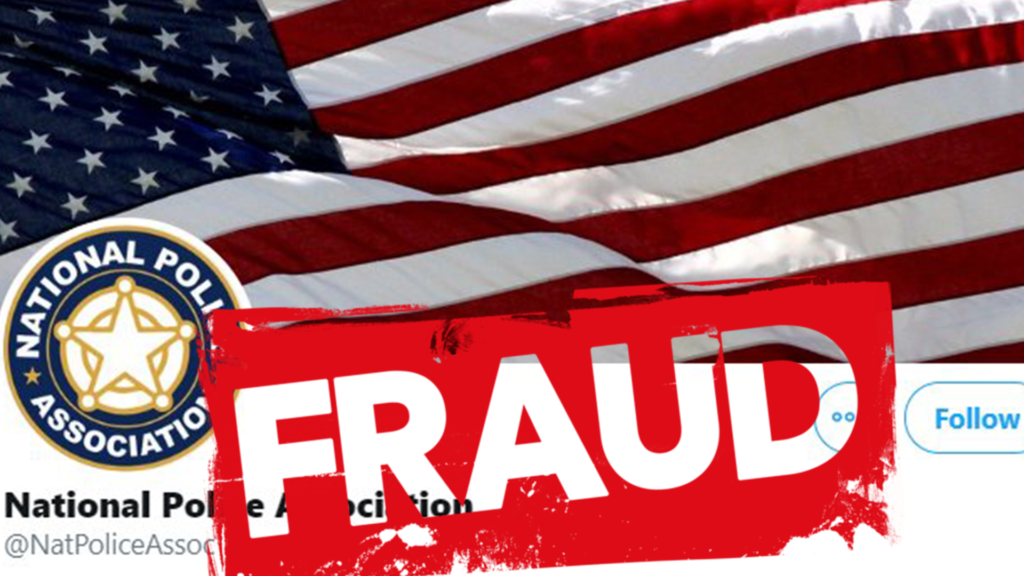July 12, 2020
United States
Shortly after the BlueLeaks data dump was published on DDoSecrets.com, the National Police Association (NPA) published a blog article that was critical of the move. Despite being published on June 25, 2020, it wasn’t discovered by DDoSecrets publisher Emma Best until July 10th.
The article claimed that the BlueLeaks data dump would have heavy ramifications for police across the United States. The author expressed fear that police investigations may be interrupted or that officers could be killed or maimed.
Behind-the-scenes phantoms with skills to sift through bytes containing sensitive information have been busy, namely targeting U.S.-based police officers’ private information. Sinisterly, they have succeeded in their nefarious endeavor, exposing thousands of cops’ names, photos, banking account information, email addresses, phone numbers, videos, texts, and a bevy of batched files pertinent to police officers and the FBI.
Source: https://nationalpolice.org/blueleaks-hackers-do-data-dump-expose-u-s-cops-personal-info/
The article seems to over-exaggerate the damage the data breach would cause and omits the fact DDoSecrets took the time to omit a large amount of personal information.
This article was written by Stephen Owsinski, a police officer turned columnist. According to his LinkedIn profile, he is currently an employee of the NPA.
Publisher’s Response
Emma Best, a journalist and one of the publishers of the BlueLeaks data set, had some rebuttals to Mr. Owsinski’s article.
First, while the article seems to imply Emma Best was responsible for the hack, she wasn’t. She was responsible for publishing it. An unidentified individual or group linked to Anonymous allegedly conducted the hack, then passed the information onto DDoSecrets.
Secondly, the article accuses the publishers of hiding their identities, but the publishers of BlueLeaks have clearly identified themselves. The article contains many other half truths and inaccuracies, such as confusing the Guardian for Wikileaks.
Best took her rebuttals on to Twitter, going step by step through the lies and defamatory claims made by Mr. Owsinski in the article.
In response to Best’s rebuttals, the NPA decided to block her on Twitter.
In response to the NPA’s actions, Best had this to say, “I think their language and lack of cogency is almost as good an argument for defunding the police as the data in BlueLeaks.”
Fraud Allegations
A disturbing detail about the National Police Association resurfaced after a quick Google search.
Not only is the NPA a tax exempt charitable organization, and not linked to an actual police agency, but it has been accused by multiple police departments of fraud.
Peter Hoell, the chief of Germantown Police Department in Wisconsin called the NPA a scam during an interview with IndyStar published May 17, 2019,
“It’s a scam,” Hoel said. “It’s no different than any other scam — just a different angle.”
Source: https://www.indystar.com/story/news/investigations/2019/03/17/national-police-association-says-its-helping-police-chiefs-say-its-scam/3144585002/
Laura Houston, the chief of the Belle Isle Police Department in Florida also had doubts about the NPA and suspected it to be engaged in fraudulent activity.
“I can’t substantiate that this is a legitimate organization and the fact that it announces we are a sanctuary city, and we’re not, that is enough for me to recommend our residents not send something out.”
Source: https://www.indystar.com/story/news/investigations/2019/03/17/national-police-association-says-its-helping-police-chiefs-say-its-scam/3144585002/
Several other people accused NPA of being a scam, it’s not clear whether these were additional allegations, or people were just echoing what was written in the article.
NPA pushes back
The National Police Association decided to sue police officer Mike Hawkins as well as the City of Trenton, and another unnamed officer. The lawsuit was described in a press release published on July 1, 2019. This was for one of the comments he made during the article with IndyStar.
It is not clear what the status of the lawsuit is currently. However, given the NPA’s previous record, it is also possible Toronto Today could be sued for publishing this article. Although, the NPA would be wise not to try that.
Despite the NPA’s attempts at censorship, the Facebook post from Belle Isle Police Department in Florida is still live on Facebook.
For more information on how to avoid scams, please check out this article by the Federal Trade Commission.
What do you think? Is the National Police Association a scam? Let us know below!
